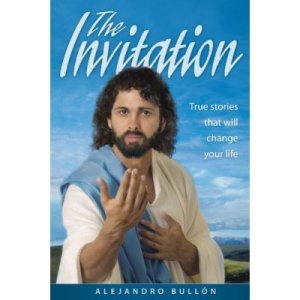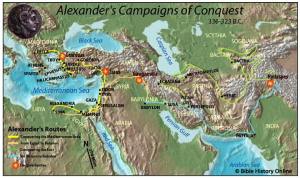
U. of Wisconsin brochure doctored to show "diversity"
1. Alex Molaire focused her project — like a trusty camera lens — on the manipulation of digital photos. This modern scandal has a historical context involving the rise of computers, so Alex begins appropriately with some numerical data describing the well-known tendency of readers in “wired” countries worldwide to abandon print media in favor of internet media. She points out that this is a global phenomenon, and that the world’s top ten online news sources hail from the U.S., the U.K., China, and South Korea.
Because of the digitization of photos and the inter-connectedness of the web, Alex says, it is easier for manipulated photos to be passed along and published on many websites before they are corrected or identified as fakes — this is part of the “viral” nature of the internet. A manipulated photo might appear once or twice in a print media source, but it would not receive the same maniacal level of attention or be passed along as many times as is possible over the internet.
I paused for a moment and thought of the Thomas Friedman book we read at the beginning of this course, The World Is Flat. He talks about “the digitization of media.” One technical concept that makes the information superhighway possible is that photos, videos, spoken words, written text, music, and many other forms of information can be “digitized” — represented by a series of numbers in a mathematical language that the computer can read and display and, well, allow users to manipulate.
It occurred to me, and Alex came to the same conclusion, that in the doctoring of digital photos, digitization is both the underlying technical culprit and the hope for technical solution. If software is being developed to make it easier to doctor photos, why not develop counter-software to detect and reveal where doctoring has taken place!
I found this list of 15 (in)famous manipulated photos at http://www.listverse.com. Some of them issued from familiar private sources such as Time Magazine and The University of Wisconsin (see above!), other from state-owned media such as the Stalin photo. It occurred to me that there needs to be a set of checks and balances in place for such photos to be discovered and exposed — the reading public needs to be vigilant. The adoption of formal ethical standards, as Alex suggests, may help, but some news sources may have a strong motive to spread misinformation, and who’s going to hold them accountable to their own professed ethical standards?
Alex’s project was deeply researched and I would like to write much more about it, but I can only scratch the surface here.

Fact Checking the campaigns
2. Betty Dishman wrote about voter information and misinformation. Her project was quite similar to mine, but focused more on getting accurate information rather than the debate and learning aspect. A couple of her fears seemed to overlap with mine — such as basing voting decisions on fear and emotion rather than fact — and I almost shuddered when I read her 5th fear:
“Our country will become [more] divided and polarized than it already is.”
The first website she links to, “Obama Crimes,” currently displays a message that says “upgrading due to interest and traffic” — which could indicate that its readership has increased even since the election, a troubling possibility. Thanks to a Facebook friend who is a vocal right-wing conspiracy buff, I am familiar with the story of Philip J. Berg, who has filed a lawsuit in Federal Court alleging that Obama is not a natural-born citizen of the United States, and therefore, cannot meet the Constitutional requirements for being President of the United States. That there is such a lawsuit, and that it has been apis fact, not myth, but whether there is any substance behind it is something we have yet to see.
I agree with Betty’s assessment of FactCheck.org and the “fact check” sections of mainstream media sites like CNN.com — they seem generally reliable about specific facts and claims. In response to the questions about Obama’s birth and citizenship status, Factcheck.org staff members actually went to Chicago to examine the Obama birth certificate that the campaign holds there, and they believe it is valid.
One thing that has helped me the most in getting accurate information during this election is listening to each candidates’ broadcasted speeches as much as possible, on TV and YouTube and elsewhere. These are the things that they say about themselves and their own agenda, and are more reliable than 100 blogs or websites. Ideally, every town (or neighborhood!) in the nation would get a lengthy town-hall meeting with both candidates, with the opportunity to hear them speak live and ask questions spontaneously. Short of that ideal, we’ll have to trust that the broadcasted speeches are an accurate presentation of what each candidate actually thinks.

internet censorship in China
3. Dick Barron has written an essay about internet censorship in China. We studied specific examples and data about censorship in China in class. For example, we found that the websites of places like the Asian-American Baptist Church in Dallas, Texas, and key military websites of Western nations and Israel were blocked in China. What exactly the Baptist church has to do with the Department of Defense is unclear to me, but they both seem to be unwelcome to the communist government of China.
Dick is concerned about the selective blocking of web domains that goes on in China, so that anti-American and pro-China resources are encouraged to the exclusion of those that would present a positive image of America or criticize China’s government. Dick is concerned that fostering an anti-American mentality among the population could make the nation more likely to sell weapons or give military support to an anti-American regime like North Korea or to potential terrorists.
Dick offers some creative solutions. One is to promote the development of more counter-censorship software that would allow individual users in China to reach blocked websites. Another would be to create a world Communications Summit where China is invited along with several more open nations such as India, “to show best practices and best results from open and free-flowing Internet use.”
I was slightly surprised that Dick did not use some of the empirical data from our class’s study of Chinese internet censorship. He could have made his case even more strongly with examples of blocked websites and content, and what types of empirically verifiable behaviors or attitudes those types of censorship may have led to among the population. But on the whole his project was well thought out and well stated.

GPS satellite in orbit
4. It’s been amazing to see how my classmates have tied the themes of their blogs into the EOTO topics they have chosen to write about. Katie Lowrance is no exception. Her blog is about athletics — marathons — and how to use the internet to find interest and information about running. Now what technology could possibly be more useful to a runner than GPS (Global Positioning System)? See the connection?
Katie lists a couple of the positive things GPS devices have done for her and for our society in general. They help us save time and gas, which is money. They help make travel to formerly unknown areas easier to accomplish. Also, they help “spatially-challenged” people, as Katie put it, find their destinations with assurance — without having to rely solely on clunky maps, confusing verbal directions from gas station attendants, etc.
I was pretty surprised when I read Katie’s fears about GPS. I didn’t know some of the malicious uses that have already been made out of this technology. Apparently the hijackers of United Airlines Flight 93 used some form of GPS technology to align their stolen plane’s flight path with the World Trade Center. Wow, that’s pretty scary. And I didn’t know that people could steal GPS devices out of cars and use them to find out where that person lives, so as to commit a crime against that person at his home. We all need to be careful about clearing the cache of private information we enter into GPS systems.
I hope Katie will continue to explore this technology, and will write about its usefulness for runners. I would like to see her write more about how runners can plan their paths, calculate distances, and all of the other useful things they can probably do with a hand-held GPS device.

Video killed the radio star?
5. Kennedy Elliott showed a lot of analytical flair in investigating the Fair Use Doctrine and how it applies to videos posted on YouTube. Kennedy’s post was a delicious taste of the world of intellectual property rights and internet law, which I hope to explore in the near future, perhaps through another UNC Certificate course.
It seems that the main issue here surrounded the removal of certain McCain/Palin campaign videos from YouTube with just weeks or a few days left until the election. The tremendous importance of a few days was neglected under the current legal arrangement, which causes videos to be taken down immediately if they are claimed to be in copyright violation by any party; and it can take weeks to effectively appeal a take-down.
This kind of legal arrangement seems like a natural breeding-ground for false accusations, as I believe Kennedy expressed well in her title, “Guilty Until Proven Fair Use.” There is basically no incentive for people to avoid making false accusations, and every incentive for them to do so. The video gets automatically pulled down until it can be investigated, while nothing negative happens to the accuser if the accusation was false. The accuser does not have to provide their personal information, while the remixer of the video does have to give personal information in order to appeal, etc.
In addition to the solutions Kennedy proposed, I would say there needs to be weightier liability for making false accusations. Kennedy mentioned that YouTube took this into its own hands to some extent recently by suspending the accounts of those who made false accusations about some videos related to Scientology. I would say these claimants should also be subject to countersuit for damages suffered by the remixer of the video.
I think we will see a time soon when YouTube will not be the only place to share videos. It is a wonderful video community, but I believe more will come. Also, tech-saavy members of political parties can start posting videos to their own websites. Why not? Obama’s website had some marvel inventions this year with FighttheSmears.com and the Tax Calculator; why couldn’t the McCain campaign respond with a McCain Video site posting all of the disputed videos? Just a thought.
 As an archetype I have chosen a shot of actor James Caviezel dressed as Jesus from the film The Passion of the Christ (found at Internet Movie Database).
As an archetype I have chosen a shot of actor James Caviezel dressed as Jesus from the film The Passion of the Christ (found at Internet Movie Database). This is my stereotype image. The picture comes with text, but I think it is fully a stereotype without the text.
This is my stereotype image. The picture comes with text, but I think it is fully a stereotype without the text. I admit, this is not really the image I wanted of Scott Stapp as a Jesus cliche.
I admit, this is not really the image I wanted of Scott Stapp as a Jesus cliche.


 Posted by criticalcomparisons
Posted by criticalcomparisons 













